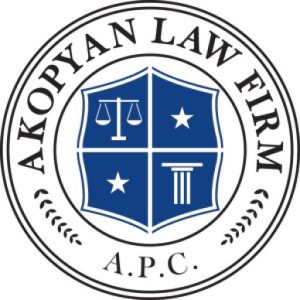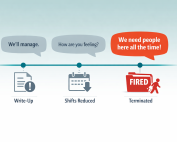Santee Employment Law Attorneys
Employment Litigation in Santee, California
Santee is a growing city in eastern San Diego County, known for its balance of suburban living and open space. Nestled along the banks of the San Diego River, Santee offers both small-town character and modern development, making it one of the region’s most livable and steadily expanding communities. With a population of roughly 60,000 residents, Santee continues to attract families, professionals, and businesses drawn to its accessibility and sense of community.
The area’s roots trace back to the late 1800s, when ranchers and farmers settled in the valley. It remained largely agricultural until the mid-twentieth century, when postwar growth and new housing developments transformed it into a suburban hub. Santee officially incorporated as a city in 1980 and has since developed a diverse local economy centered on retail, construction, education, and light industry.
Akopyan Law Firm, A.P.C. represents employees and employers in Santee in all types of employment disputes. Our attorneys focus exclusively on employment litigation and bring extensive courtroom experience to every case.
Employment Law in Santee
Santee’s employment landscape is as varied as its community, spanning small businesses, schools, public agencies, and private companies. California’s employment laws impose extensive regulations that affect every workplace, and when disagreements arise over termination, pay, or workplace conduct, litigation often becomes the necessary path to resolution.
Akopyan Law Firm provides legal representation in lawsuits involving wrongful termination, discrimination, harassment, retaliation, and wage-and-hour violations. We represent both employees and employers in Santee and throughout San Diego County, offering dedicated advocacy and strategic legal guidance at every stage of the litigation process.
Representation for Santee Employees
 Workers in Santee contribute to nearly every sector of the local economy—from retail and education to construction and healthcare. When employees experience mistreatment, wrongful termination, or wage violations, they deserve representation from attorneys who understand both the law and the personal impact of workplace disputes.
Workers in Santee contribute to nearly every sector of the local economy—from retail and education to construction and healthcare. When employees experience mistreatment, wrongful termination, or wage violations, they deserve representation from attorneys who understand both the law and the personal impact of workplace disputes.
Akopyan Law Firm stands up for employees whose rights have been violated under California law. We pursue claims involving discrimination, harassment, retaliation, and unpaid wages with diligence and determination, working to hold employers accountable and achieve meaningful results for our clients.
Litigation for Santee Employers
Employers in Santee face the challenge of complying with some of the most demanding labor laws in the nation. Even when businesses act in good faith, misunderstandings and conflicts can lead to litigation. Defending against employment-related lawsuits requires experienced legal counsel and a strategic approach.
Akopyan Law Firm represents employers in Santee in all types of employment litigation. Our attorneys have significant experience handling cases in both state and federal courts and are committed to protecting our clients’ interests through skilled advocacy and careful preparation.
Santee’s Community and Workforce
Santee’s continued growth reflects a strong sense of local identity. The city’s combination of open space, new development, and a thriving business sector creates an active and diverse workforce. With its convenient location, excellent schools, and expanding job base, Santee serves as both a residential community and an economic hub for East County.
Akopyan Law Firm understands the character of Santee and the realities of employment in a developing city. Our litigation practice is built on experience, professionalism, and a commitment to achieving results for both employees and employers involved in workplace disputes.
Contact Akopyan Law Firm, A.P.C.
If you are an employee or employer in Santee facing an employment-related legal issue, Akopyan Law Firm is ready to help. Our practice is dedicated entirely to employment litigation, and our attorneys have extensive experience representing clients across Southern California.
To discuss your situation or schedule a confidential consultation, contact Akopyan Law Firm, A.P.C. today. Our team provides skilled legal advocacy and effective representation in every employment law matter we handle.
We Can Help Santee Residents With Cases Involving:
Featured Article:
Comments from Supervisors About Family Medical Leave That May Support Concerns About Unlawful Retaliation
📌 Key Takeaways Supervisor remarks that frame an employee’s use of job-protected leave as a workplace problem, particularly when followed by discipline or termination, may be relevant when evaluating whether an adverse employment action was lawful. Comments Reframing “Reliability”: Statements that the workplace needs people “here all the time” may recharacterize job-protected leave-related absences as an “attendance” issue and may later be used to justify discipline or termination. Job Security Threats: Statements that a job may not be there after leave, or that management wants “more available” workers, can link job-protected leave to job loss and may support an inference that leave was viewed negatively. Pressure on Medical Time: Questions about treatment that shift into pressure to move appointments, return early, or limit time away, including comments that trivialize medical care, may discourage the use of job-protected leave. Comments and Job Actions: When new criticism, write-ups, or shift cuts appear soon after a request for job-protected leave and similarly situated coworkers who did not take leave are treated differently, the sequence may warrant review. Viewed together, what a supervisor in Southern California says about job-protected leave, and when those comments occur, can change how later discipline or termination is understood. ~ ~ ~ ~ ~ ~ ~ ~ ~ ~ ~ ~ ~ ~ ~ ~ ~ ~ Supervisor comments about family medical leave can help show whether an employer views job-protected leave as a protected workplace right or as a burden. When those remarks appear close in time to write-ups, schedule cuts, demotion, or termination, they may support concerns about retaliation or interference with protected leave rights, rather than a purely business-related decision. Why Supervisor Comments About Family Medical Leave Matter for Job Security For many hourly workers, the first warning sign about job security is a shift in how a supervisor talks about time away from work. When California Family Rights Act (CFRA) and/or the federal Family and Medical Leave Act (FMLA) or related laws apply, employers are prohibited from retaliating against employees for requesting or using job-protected leave. That is why patterns in how supervisors discuss leave can become significant when later job decisions are described as “attendance” or “performance” issues. Workers Most Affected by Problematic Leave-Related Comments These concerns may arise for workers across many roles in Southern California communities such as Los Angeles, Bakersfield, Costa Mesa, and San Diego. Construction laborers, warehouse staff, production workers, retail associates, food service workers, landscaping crews, and delivery drivers may request job-protected leave for serious health conditions or caregiving needs and then face new scrutiny, reduced hours, or termination. Comment Patterns That May Signal Retaliation for Job-Protected Family Medical Leave Certain recurring ways of talking about job-protected leave can raise concerns, especially when the comments appear alongside discipline, demotion, schedule cuts, or termination after an employee requests or uses job-protected leave. Comments Linking Family Medical Leave to “Reliability” or “Commitment” Supervisors may say the workplace needs people who are “here all the time,” or that medical visits make... Read more
Unlawful Termination After Requesting Time Off to Care for a Seriously Ill Family Member in California
📌 Key Takeaways Close timing can matter. When an employer disciplines, reduces hours, changes schedules, or terminates an employee shortly after a request for job-protected family-care leave, the sequence of events may be relevant in a retaliation or interference analysis. Compare “before” and “after.” A shift from stable performance feedback to sudden criticism, write-ups, or schedule changes after a leave request can be an important pattern to document. Employer reasons should be evaluated against the record. “Restructuring,” “performance issues,” or “minor mistakes” may be legitimate in some situations, but a lawyer will often assess whether those explanations are consistent, documented, and applied evenly. More than one law can apply. Depending on eligibility and the facts, job-protected family and medical leave protections and anti-retaliation rules may overlap. Details and documents help. In an initial consultation, an employment lawyer will typically focus on the timeline, written communications, schedule records, and supervisor statements to assess potential claims. ~ ~ ~ ~ ~ ~ ~ ~ ~ ~ ~ ~ ~ ~ ~ ~ ~ ~ When an employee in California loses a job soon after requesting time off to care for a seriously ill family member, that timing may raise questions about whether the employer acted unlawfully. In many cases, the key issues are what was requested, whether the request involved job-protected leave, what changed afterward, and how the employer explains the termination or other adverse actions. When A Request for Family-Care Leave is Followed by Job Loss Consider two examples: Example 1: An employee in a warehouse role requests several days off to help a spouse through serious surgery. After the request, the employee’s schedule changes, disciplinary write-ups begin, and the employer terminates the employee. Example 2: A grocery employee requests time off to care for a seriously ill parent. Soon afterward, a supervisor starts focusing on minor issues that previously drew no attention, and the employee is told the position is no longer available. These examples do not prove wrongdoing by themselves. But when termination (or other significant employment actions) closely follows a request for job-protected family medical leave, the timing and pattern can become relevant facts in evaluating possible retaliation, interference with protected leave, or other unlawful conduct. Employees In Hourly and Schedule-Dependent Jobs May Feel the Impact Most Immediately A sudden termination can be especially disruptive for employees in hourly, schedule-dependent, or frontline roles (for example, warehouse, retail, delivery, restaurant, manufacturing, and similar jobs). Job loss in these circumstances often creates: Immediate loss of income needed for housing, food, transportation, and basic expenses. Added strain when the same paycheck supports a seriously ill family member’s care. Limited ability to absorb missed paychecks, particularly for employees living paycheck to paycheck. It is also common for employees to feel unsure how to describe what happened or to assume the situation is “just unfair.” A clearer approach is to focus on the sequence of events, the employer’s actions, and what was said or documented. Red Flags to Document Before and After... Read more









Millions of Dollars Recovered For Our Clients
Check Out Our Case Results




